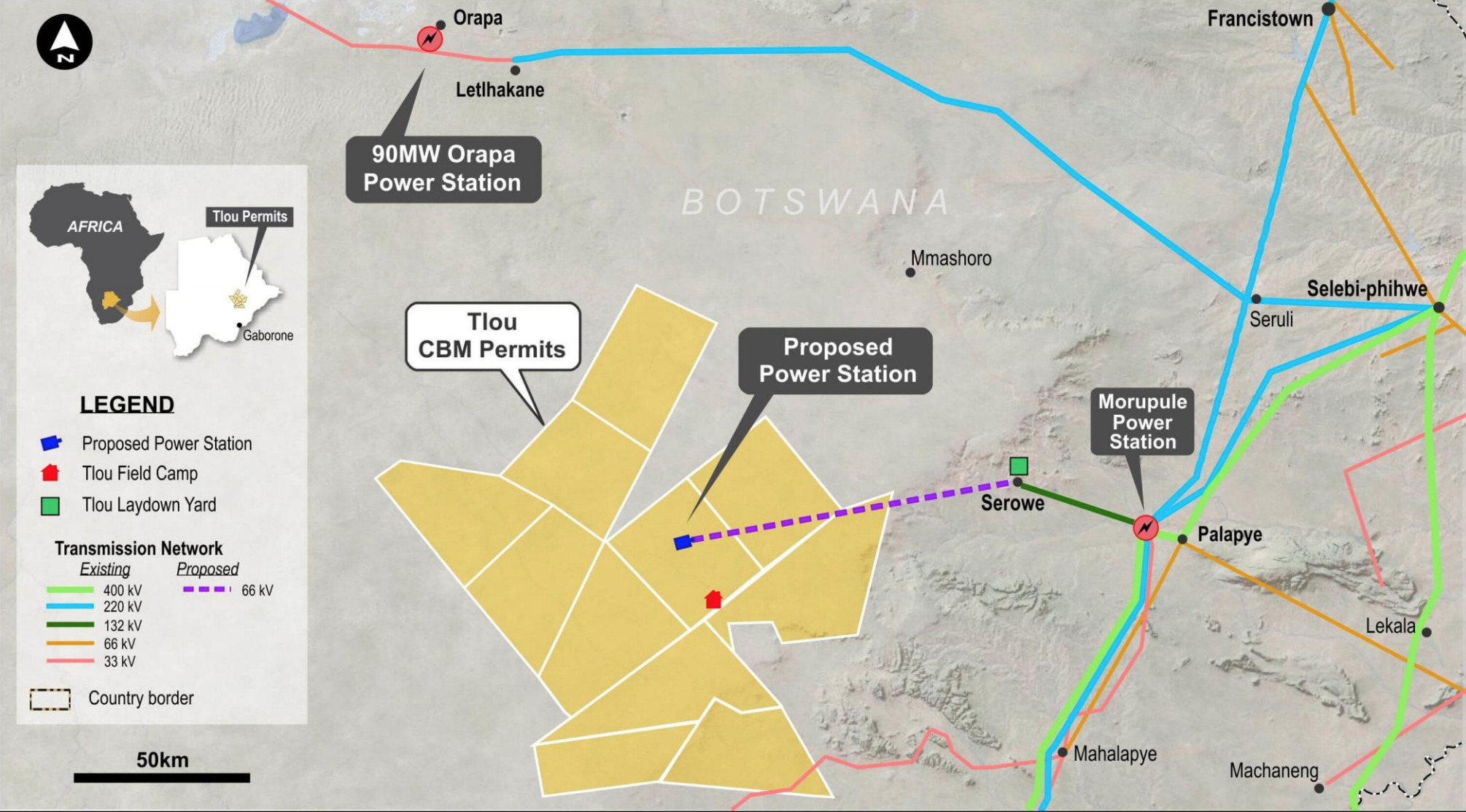Tlou Energy has signed this morning a 10 MW Power Purchase Agreement (PPA) with the Botswana Power Corporation (BPC) under which BPC will purchase up to 10 MW of power generated at the company’s Lesedi power project. The PPA is for an initial five-year term and will help Tlou Energy in reaching financial close for Phase 1 of the project, expected to cost $10m.
A Pioneering Project for Botswana’s CBM Industry
Tlou Energy has been working on developing Botswana’s coal-bed methane (CBM) reserves to generate electricity since its incorporation in 2009. Now listed on the AIM, ASX and BSE, the company is focusing on the development of three major project areas in Botswana: Lesedi, Mamba and Boomslang. Lesedi is a lot more advanced and is being developed as a scalable and hybrid solar and CBM gas-to-power project. It has in fact been producing gas for several years now from the Selemo project, though in small quantities. That gas has been used since 2017 to replace diesel within the generators on site.
Lesedi remains an extremely attractive venture because of continued power deficit in Botswana, and continued reliance on coal-based electricity generation and imports. By burning coal and diesel, and importing significant amount of electricity from South Africa, Botswana spends on average $100m every year on securing energy for its industries and households. In contrast, Lesedi is one such project with the ability to offer a cheaper and cleaner solution from a fully local resource base.
Two Phases Requiring $30m
The Lesedi project is now being developed in two phases. Phase one involves the construction of the 100km transmission line from Lesedi to Serowe, which will act as the backbone for any monetisation of electricity produced from CBM at Lesedi. At a cost of $10m, it also involves the installation of transformers and generators, and the establishment of a grid connection. Initial electricity generation in phase one is proposed to be up to 2 MW.
It will then be followed by phase two, at a cost of about $20m, targeting expansion from 2 MW to 10 MW and involving drilling of additional gas wells and the purchase of additional electricity generators. Any further expansion beyond 10 MW will then rely on project revenues and debt from the first two phases.
Botswana’s First Carbon Neutral Baseload Power Project?
In February 2021, Tlou Energy announced it was working towards the goal of being the first carbon neutral baseload power project in Botswana by further advancing land acquisition for carbon sequestration. The company’s plans to combine gas, solar and carbon sequestration at Lesedi make the project a truly unique one for Africa and could result in the supply of carbon neutral power to significant regional power consumers such as the Orapa diamond mine operated by Debswana and located north of Tlou’s gas fields.
Full details on the Lesedi Hybrid CBM and Solar Power Project are available in the “Projects” section within your Hawilti+ research terminal.

